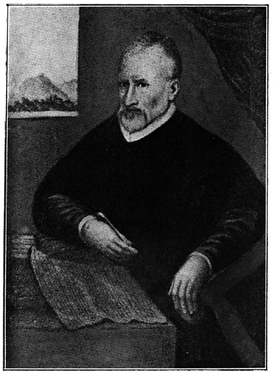Renaissance Era: Important Composers, Theorists, and Performers
Josquin des Prez (1440-1521, Flemish)

![]() Listen to the example below:
Listen to the example below:
Josquin has many surviving works, which include dozens of masses, a hundred motets, and a lush collection of secular music. Much of his music was based on popular melodies of the day. His additions included other vocal parts in counterpoint to the tune. This created a polyphonic sound where several vocal melody lines were simultaneously sung creating obscurity of the text, yet also a very complex and intricate experience.
Giovanni Pierluigi da Palestrina (1525-1594, Italian)

![]() Listen to the example below:
Listen to the example below:
Palestrina wrote over a hundred masses and 250 motets. In following the new requirements for the Catholic Church by the Council of Trent (1545-1563) he wrote music in a pure and restrained style. His music did not utilize popular melodies in his vocal lines. He instead wrote each vocal line in resemblance to a medieval chant melody. It was still written in a polyphonic format, but the text was clearly understood. His style was so popular that other composers studied his counterpoint methods.
Giovanni Gabrieli (1553-1612, Italian)
Gabrieli wrote sacred music using the unusual layout of the San Marco Church where he was an organist. His music was written to create an antiphonal sound—a choir or group of instruments first heard on the right followed by a response from other musicians on the left. Gabrieli also started the tradition of writing motets with instrumental accompaniment.
William Byrd (1543-1623, English)
William Byrd mastered every style of music that he had access to. He is considered to be one of the most significant English composers of all time. He wrote many choral works as well as keyboard works.
Claudio Monteverdi (1567-1643, Italian)
Claudio Monteverdi wrote the very first dramatic opera, La favola d’Orfeo, which is still performed today. Monteverdi was the creator of the opera, which basically is a musical drama. His work marked the transition from the Renaissance style of music to that found in the Baroque era. He also wrote nine books of madrigals.
